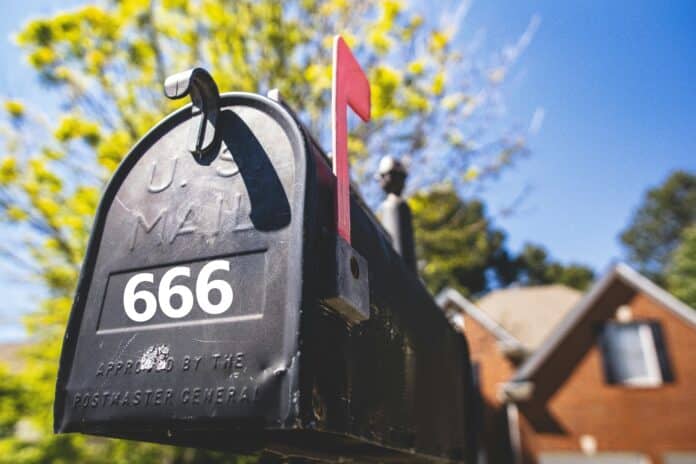In the annals of Topeka lore, few debates spark as much heated discussion as the age-old question: Which came first, Topeka’s zip code or the Mark of the Beast? While the question might seem absurd to outsiders, for locals, it’s a matter of civic pride, theological reflection, and the occasional side-eye from nearby communities.
Topeka, Kansas, famously resides within the 666-prefix zip code zone, a numerical curiosity that has inspired equal parts humor and existential dread. Some see it as a harmless quirk, a cosmic joke at the heartland’s expense. Others, particularly those with apocalyptic leanings, see it as a sign of darker forces at play. It’s not uncommon to overhear heated discussions in local diners, where hash browns, cinnamon rolls mixed with chili, and hellfire mix as Topekans dissect the origins of their infamous digits.
According to the United States Postal Service, Topeka’s zip code was assigned in 1963 as part of the national roll-out of the Zoning Improvement Plan (ZIP). At the time, government officials likely had no inkling that assigning 666 to a region might raise eyebrows. Or did they? Conspiracy theorists argue that the choice was no coincidence but rather part of a shadowy scheme to test the nation’s moral resilience. After all, what better place to test endurance against evil than the nation’s wholesome heartland?
Of course, the Biblical reference to the number 666 as the “Mark of the Beast” complicates the narrative. Religious leaders in the area have long debated whether the zip code’s peculiar association with Revelation’s apocalyptic prophecy is a sign of divine testing or simply bureaucratic happenstance. The First Church of Topekan Deliverance even held a special sermon in 1977 titled “Our Postal Predicament: Is the Devil in the Details?” which drew a crowd large enough to warrant overflow seating in the fellowship hall.
Adding fuel to the fire, the zip code is also home to the infamous Westboro Baptist Church, a group known for its controversial and inflammatory protests. Many locals see the church’s presence as an unfortunate blight on the city’s reputation, often joking that the zip code’s sinister number might explain the group’s existence. “If the devil has a headquarters, it’s probably in their basement,” quipped one resident who wished to remain anonymous. Meanwhile, others argue that the church’s actions are a greater threat to Topeka’s image than any numerical coincidence.
Local businesses have alternated between embracing and avoiding the numerological infamy. A now-defunct tattoo parlor once offered “666” discounts, boasting slogans like “Mark Yourself in Topeka” (a marketing campaign that ended abruptly after protests). On the other hand, a prominent insurance agency changed its office’s address from 666 Elm Street to 668 Elm Street, reportedly after receiving a flurry of concerned letters from out-of-state clients.
Despite the controversy, Topekans have learned to make light of their zip code’s infernal implications. T-shirts reading “I Survived 666” and “Welcome to Topeka: One Hell of a Town” sell briskly at local gift shops. Tourists occasionally stop to snap selfies next to the town’s “Entering Zip Code 666” sign, though it’s worth noting that such signs are frequently stolen—perhaps by collectors, or perhaps by those hoping to banish the digits from the public eye.
The real question remains: Does the zip code’s notoriety influence the lives of those who live under its dominion? Some residents swear by strange occurrences—misdelivered packages, suspicious power outages, or an uncanny number of black cats on their routes to work. Others shrug off such claims, insisting that a zip code is just a zip code. As local historian Mildred Johnson put it, “We’re a city of good people, not some apocalyptic outpost. Let’s leave the devilish paranoia to the internet.”
Whether Topeka’s zip code was assigned through divine irony, diabolical design, or plain postal pragmatism, one thing is clear: the numbers have left an indelible mark on the city’s identity. And for the record, the Beast probably didn’t file his paperwork first.





